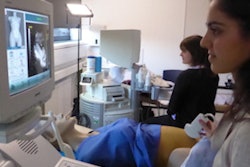
Motions to address the need for safer working conditions for radiographers were actively discussed at this week's annual delegate conference of the U.K. Society of Radiographers (SoR).
A number of speeches focused on how the lack of sustainable workforce planning has created a staffing crisis, according to the SoR. In addition, preliminary results from the society's recent workplace survey also revealed some worrying trends.
For example, just 22% of respondents indicated that their department was very safe, while a quarter felt it was either somewhat or very unsafe. What's more, almost 30% said that patient safety Datix reports are not always completed after incidents. And only 49% indicated they were even somewhat confident that Datix reports will be acted upon if or when completed, the SoR said.
SoR Executive Director Dean Rogers said that it would be "deeply troubling" if these reports -- considered an essential check that are relied upon as measures -- are unreliable.
"We will be looking at this urgently, with the aim of producing support and guidance for Reps to make sure all staff, including managers, are secure and confident not to compromise staff and patient safety," said Rogers in a statement. "Trust must be accountable for the welfare of staff and patients. This is a no-compromise area."
The society said it's also trying to recruit more health and safety representatives and ensuring that these representatives work closely with other local industrial relations representatives.
The SoR noted that the pressure on radiographers is being reflected in attitudes to working in the National Health Service (NHS). Although 63% of survey respondents said they would still recommend a career in radiography to friends and family, only 56% would recommend working for their trust and four in 10 said they wouldn't recommend working in the NHS.
"Everyone interested in a better, sustainable NHS needs to focus all their energy on solving the staffing crisis," Rogers said. "The NHS has to be a safe and reasonable place to work. For too many, it doesn't feel that it is."
It's time for the NHS leaders to be brave and honest with themselves, politicians, and the public, Rogers said.
"There are lots of quick wins that can help to break this vicious circle -- making people feel safe and valued stops fuelling the fires," he said.


















